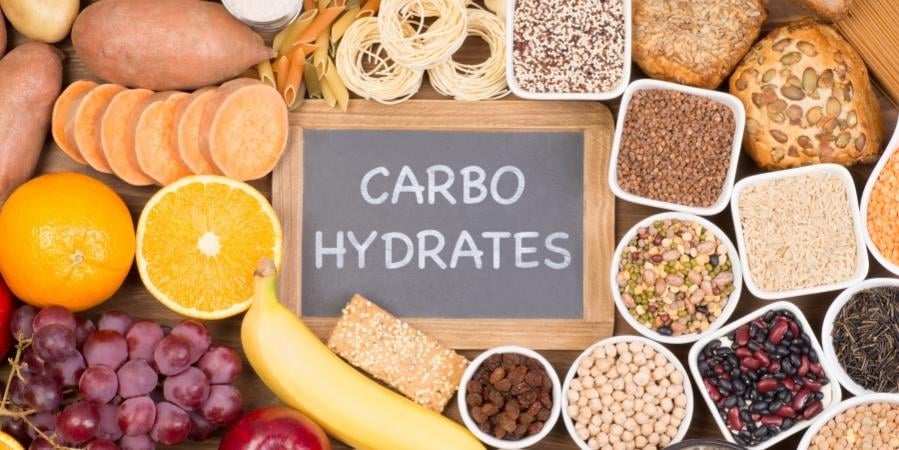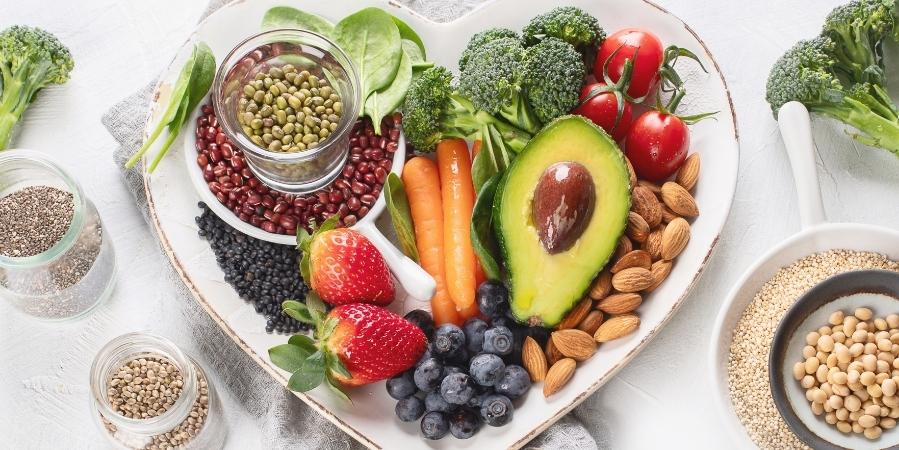When people think of energy, they think of protein and carbohydrates, and that the two main sources are meat and bread. Contrary to popular belief, plants provide the most carbohydrates(1). And while meat has all the amino acids you need, you can get just as much from plants as well. The only difference is that not all the amino acids can be found in a single plant.
Are Carbs Bad?
Your body uses carbohydrates as it’s main fuel of energy it almost exclusively comes from plants!. It is the most efficient and the most desired fuel for the body (1). Diets that are centered on a low-carbohydrate diet reduce the amount of energy our body has. For example, the ketogenic diet uses protein as it’s main source of fuel for the body but it does not yield as much energy as carbohydrates would. Our body spends a lot more energy trying to convert the protein into a fuel source than it would using carbohydrates, causing us to be fatigued and slow. When people think carbs are bad, they are thinking of simple or refined carbs such as white bread or pasta. Carbohydrates actually include sugar, fibers, and starches which are found in almost all fruits and vegetables.

Increased Blood Flow
Eating a plant-based has also been shown to increase the blood flow in your body (2). That means that the blood is able to move through the body faster and easier! When people eat animal-based meals, their blood can thicken and make it harder to move throughout the body.
It makes us tired and fatigued more easily when blood can’t reach our muscles efficently. This type of diet makes it a breeding ground for chronic inflammation and disease such as cardiovascular disease, obesity, and even cancer.

Reduced Inflammation
Animal-based diets are also shown to increase inflammation in our bodies. When our bodies are inflamed, blood gets redirected to those spots which can become chronic and painful. The inflammation starts to damage healthy tissue and its purpose of healing becomes useless. Animal-based diets contain products and chemicals that are pro-inflammatory and increase our risk of chronic inflammation (3).
To combat chronic inflammation, a vegan diet is just what we need! Plant-based diets contain thousands of antioxidants that help reduce inflammation and helps us recover faster! Antioxidants work by destroying the harmful cells in our body like free radicals and help protect our bodies against diseases (4). This gives us more energy and motivation to go out and live our lives rather than be worried about our pain!

Dedicating yourself to a plant-based diet will allow you to explore and experiment with an abundance of recipes and healthy products. Check out these recipes for some delicious plant-based meals!
- Panko Tofu Nuggets With Hidden Greens
- Gluten-Free Herbed Chickpea Pancakes
- Vegan Carrot Hot Dogs
- Vegan Bacon With Coconut Flakes
- Dairy-Free Cashew Cream Cheese

Choosing a healthy plant-based and vegan diet is most beneficial when it comes to:
-
Higher levels of energy;
-
Improved sleep;

-
Aids in energy and overall happiness;
-
Provides a sense of comfort and relief;
-
Could prevent major diseases such as obesity and diabetes;
-
Accomplish weight loss and management; and
-
Improves mental and cognitive functioning.
There are really no excuses not to try healthier habits in your everyday life. If you are looking for specific benefits of adopting healthier habits or just want to know about the general healing properties of herbs. Please remember to comment or post any health questions, or contact us directly
Resources:
- Thomas, D Travis, et al. “American College of Sports Medicine Joint Position Statement. Nutrition and Athletic Performance.” Medicine and Science in Sports and Exercise, U.S. National Library of Medicine, Mar. 2016, www.ncbi.nlm.nih.gov/pubmed/26891166.
- Barnard, Neal D, et al. “Plant-Based Diets for Cardiovascular Safety and Performance in Endurance Sports.” MDPI, Multidisciplinary Digital Publishing Institute, 10 Jan. 2019, www.mdpi.com/2072-6643/11/1/130.
- Erridge C, Attina T, and Webb DJ Spicket CM. “A High-Fat Meal Induces Low-Grade Endotoxemia: Evidence of a Novel Mechanism of Postprandial Inflammation.” University of Leicester, 17 May 2016, www2.le.ac.uk/departments/cardiovascular-sciences/people/erridge.
- “Antioxidants.” The Nutrition Source, 14 Nov. 2019, www.hsph.harvard.edu/nutritionsource/antioxidants/.














